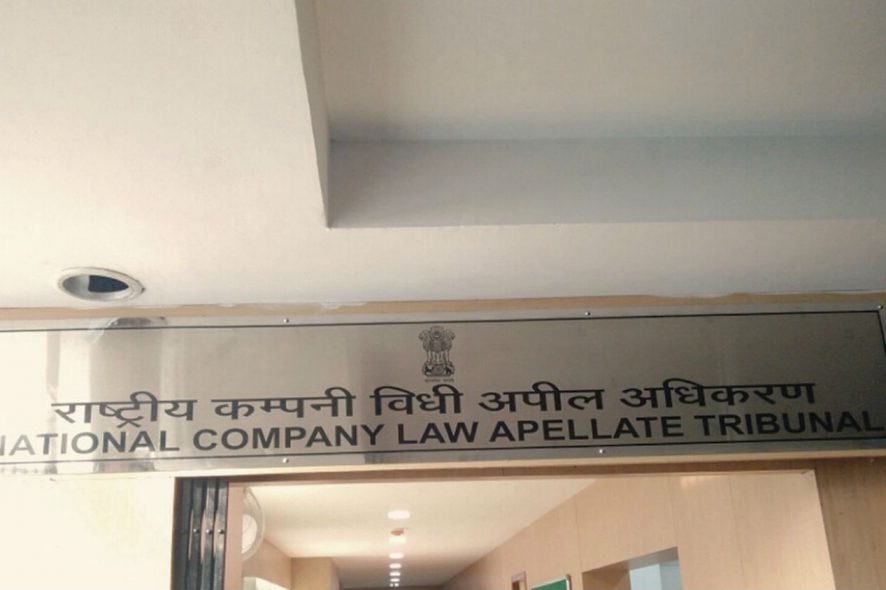National Company Law Appellate Tribunal (NCLAT): A Division Bench of Justice Jarat Kumar Jain (Judicial Member) and Balvinder Singh (Technical Member) while addressing the present appeal observed that,
Scheme under Section 230 of the Companies Act, 2013 cannot be used as method of rectification of the actions already taken.
Appellant preferred the instant appeal under Section 421 of the Companies Act, 2013 challenging the impugned order passed by the National Company Law Tribunal, Mumbai.
What led to the filing of the present appeal?
Respondent 1 presented a Scheme of Arrangement under Sections 391-394 of Companies Act, 1956 (Existing Sections 230-232 of Companies Act, 2013) for sanction of the Arrangement embodied in the scheme originally filed before Bombay High Court which by virtue of MCA notification got transferred to NCLT, Mumbai.
Appellant pointed out certain irregularities and non-compliance and raised the objections that the Scheme of Arrangements is a mere rectification of action already taken by the respondent company without obtaining approval of Tribunal and other Regulatory Authorities as required under the provisions of Companies Act.
Since, NCLT, Mumbai in its order held that the scheme appeared to be fair and reasonable, the appellant being aggrieved with the same filed the present appeal.
Observations of the Tribunal
Bench noted that the in view of the records it was apparent that there were irregularities and non-compliances from a very long time due to which Stock Exchange took action against the respondent 1 company and suspended the trading of its securities in the year 2002.
No action being taken on behalf of the respondent 1 company had a serious impact on the investors who invested their hard-earned money in the company. The non-compliances and irregularities or any illegal act already committed cannot be ratified under the umbrella of “scheme” as envisaged under Section 230-232 of Companies Act, 2013.
Further, even if the objection of the Respondent 1 Company that the Appellant has no locus standi under Section 230 (4) to object the scheme is accepted but this will not affect the power of Regional Director as there is no such limitation prescribed for the Regional Director to file his objections as he is a public authority and has to look after the interest of the public/shareholders/investors at large.
Bench noted from the observations made by the Regional Director that there were irregularities and non-compliances that were present at the time of sanctioning of the scheme by the NCLT.
Company must be in compliance of the provision of law and cannot act just on the basis of a legal opinion.
The respondent 1 Company should have instantly rejected the application money for 10,375 shares as the Application applied were for less than the minimum lot size i.e. 100 shares.
Since the scheme appeared to be used as a course of action to rectify the irregularities previously done/committed by respondent 1 company, grounds raised by the regional director for dismissing the petition was just and reasonable.
Main objective behind the establishment of SEBI is to protect the interest of the investors and their hard-earned money trading in the stock exchanges, to regulate and facilitate efficient and flawless functioning of the securities market, to promote its development and to resolve the matters connected to it.
NCLT overruled the objections of the Regional Director in view of the said being procedural in nature.
Wrong Precedent
For the above aspect, Bench stated that even if the objections were procedural in nature, it is the jurisdiction of the Tribunal that such procedural aspects need to be duly complied with before sanctioning of the scheme as it would lay down a wrong precedent which would allow companies to do whatever acts without the compliance and confirmation of the Court and other sectoral and regulatory authorities and thereafter get it ratified by the Court under the Umbrella of “scheme”.
Decision
Tribunal held that before the sanctioning of Scheme under Section 230 of the Companies Act, 2013, no action should be pending against the company by the public authorities.
It is the duty of the Tribunal or any Court that their Orders should encourage compliances and not defaults.
Hence, the appeal was allowed and the impugned order set aside. [Ashish O. Lalpuria v. Kumaka Industries Ltd., 2020 SCC OnLine NCLAT 676, decided on 20-10-2020]






